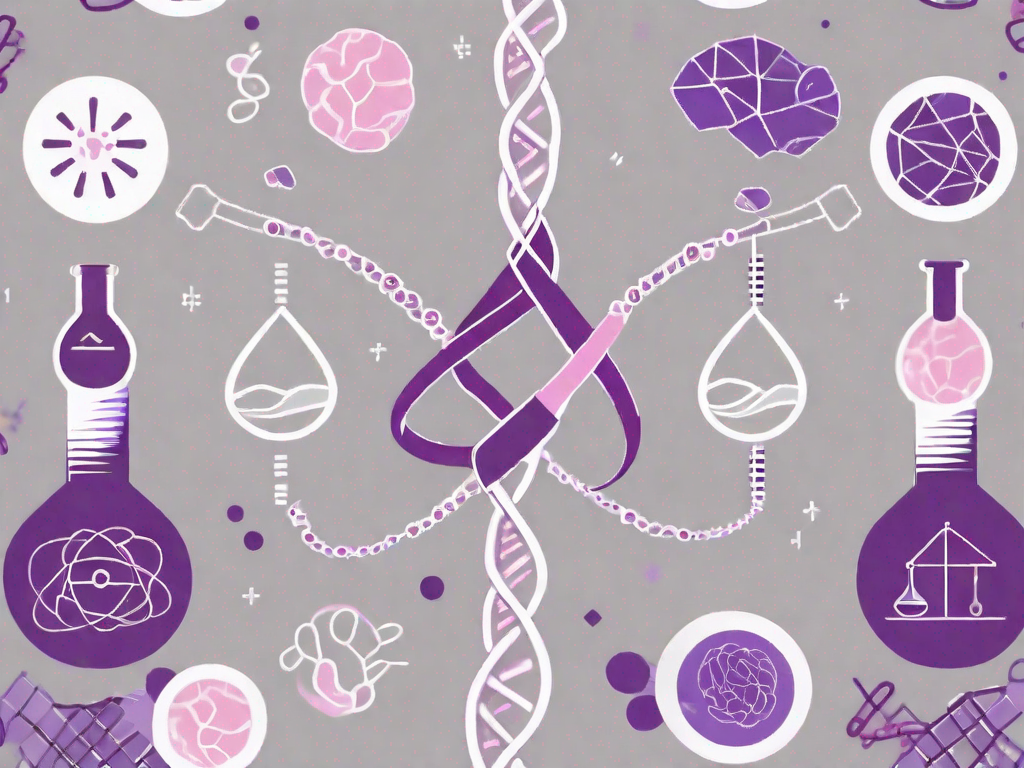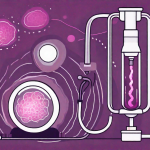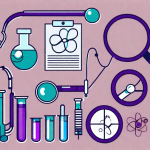Genetic testing is increasingly vital in cancer prevention, allowing for the analysis of individual genetic codes to assess cancer risk. This testing, usually performed via blood samples or cheek swabs, looks for specific genetic mutations that indicate a predisposition to various cancers, including breast, ovarian, colorectal, and others. It’s particularly recommended for those with a strong family history of cancer or specific risk factors. Genetic testing not only aids in identifying individuals at higher risk, who may benefit from more frequent and targeted screening like mammograms and colonoscopies, but also helps in personalizing cancer prevention strategies. Those testing negative for high-risk mutations can find reassurance and focus on general prevention, while positive results can lead to specialized care and treatment. As genetic research advances, testing is becoming more accessible and is expected to lead to more precise, targeted cancer therapies, highlighting its growing importance in early detection and improved cancer outcomes.
The emerging field of genetic testing is providing invaluable insights into one’s risk of developing cancer. By examining an individual’s genetic code, healthcare providers can gain a deeper understanding of their susceptibility to certain types of cancer. Armed with this knowledge, patients and physicians can take proactive measures to detect and prevent cancer at its earliest stages. In this article, we will explore the comprehensive world of genetic testing for cancer and its potential to revolutionize the way we approach prevention and treatment.
Genetic Testing Explained: What it is and How it Works
Genetic testing is a powerful tool that allows healthcare professionals to analyze an individual’s genes for specific alterations or mutations associated with cancer. By examining segments of DNA, the building blocks of our genetic code, scientists can identify variations that may predispose someone to certain types of cancer. This type of testing can be performed on a small blood sample or a cheek swab, making it a relatively quick and non-invasive procedure.
Once the sample is collected, it is sent to a specialized laboratory where scientists analyze the DNA for any abnormalities. This process involves sequencing the genetic material and comparing it to a reference sequence to identify any variations. The results are then interpreted by genetic counselors or healthcare providers who can provide guidance and support based on the findings.
The Connection Between Genetics and Cancer Risk
It is now widely recognized that certain genetic changes can significantly increase an individual’s risk of developing cancer. These changes can be inherited from one or both parents, or they may occur spontaneously within an individual’s DNA. Understanding the link between genetics and cancer risk is crucial in order to identify high-risk individuals and implement appropriate screening and prevention strategies.
For instance, mutations in the BRCA1 and BRCA2 genes are strongly associated with an increased risk of breast and ovarian cancers. Individuals who carry these mutations may be offered more frequent screenings or preventive measures such as prophylactic surgery. Similarly, the presence of certain genetic mutations can also influence the risk of colorectal, uterine, and other types of cancer.
Types of Genetic Tests for Cancer Screening
There are several types of genetic tests available for cancer screening, each targeting specific genes or genetic disorders. Let’s explore some of the most commonly used genetic tests:
- BRCA1 and BRCA2 Testing: These tests are designed to identify mutations in the genes associated with breast and ovarian cancers. Mutations in these genes significantly increase the risk.
- Lynch Syndrome Testing (MLH1, MSH2, MSH6, PMS2, EPCAM): This testing is used to detect mutations responsible for Lynch syndrome, a hereditary condition that increases the risk of colorectal, endometrial, and other types of cancer.
- Familial Adenomatous Polyposis (FAP) Testing (APC gene): FAP testing is performed to identify mutations in the APC gene, which is associated with the development of numerous polyps in the colon and rectum.
- Multiple Endocrine Neoplasia Type 1 and 2 (MEN1, RET genes): These tests screen for mutations in genes that can lead to the development of tumors in the endocrine glands.
- Von Hippel-Lindau Syndrome Testing (VHL gene): Von Hippel-Lindau syndrome testing aims to detect mutations in the VHL gene, which is linked to the formation of tumors in various parts of the body, including the kidneys.
- Li-Fraumeni Syndrome Testing (TP53 gene): This test identifies mutations in the TP53 gene, which significantly increases the risk of several types of cancer, including breast, brain, and bone cancer.
Who should consider genetic testing for cancer?
Genetic testing for cancer is a highly personalized decision that should be discussed with healthcare providers or genetic counselors. However, certain individuals may benefit from considering genetic testing:
- Individuals with a strong family history of cancer, especially if multiple family members have been diagnosed at an early age.
- Individuals who have already been diagnosed with cancer and want to understand their risk of developing additional cancers.
- Individuals from populations with a higher prevalence of specific cancer-related genetic mutations.
- Individuals who have specific risk factors or symptoms that warrant further investigation.
The Advantages of Targeted Cancer Screening Through Genetic Testing
Traditional cancer screening methods, such as mammograms and colonoscopies, are essential for detecting tumors and abnormalities. However, genetic testing has the potential to enhance these screening efforts by identifying individuals who may benefit from more intensive surveillance or targeted preventive measures. By tailoring screening protocols to an individual’s specific genetic profile, healthcare providers can optimize the chances of detecting cancer at its earliest, most treatable stage.
For example, genetic testing can identify individuals at high risk for hereditary breast cancer. These individuals can then receive more frequent mammograms or consider additional imaging techniques, such as breast magnetic resonance imaging (MRI), to improve the chances of detecting cancer at its earliest stage. Furthermore, individuals with genetic mutations associated with an increased risk of colorectal cancer may undergo colonoscopies at younger ages and at more frequent intervals to maximize early detection.
The Benefits of Personalizing Cancer Screening Through Genetic Testing
Another advantage of genetic testing is the ability to personalize cancer screening recommendations based on an individual’s unique genetic makeup. For instance, if an individual tests negative for a specific genetic mutation associated with an increased cancer risk, they may be reassured that their risk is similar to that of the general population. On the other hand, if a genetic mutation is discovered, a person can access specialized care, risk reduction strategies, and targeted treatment options.
Furthermore, genetic testing can offer peace of mind to individuals who test negative for high-risk genetic mutations. Knowing that they do not carry these specific mutations can alleviate anxiety and allow individuals to focus on general cancer prevention strategies, such as maintaining a healthy lifestyle and undergoing regular screenings.
The Future of Genetic Testing in Cancer Screening
As research in genetics and cancer continues to advance, the future of genetic testing holds great promise. Scientists are continuously discovering new genetic markers that can help identify individuals at an increased risk of various types of cancer. Additionally, advancements in technology are making genetic testing more accessible and affordable, allowing the benefits of this screening tool to reach a wider population.
Moreover, ongoing research is exploring the potential of targeted therapies based on an individual’s genetic makeup. By understanding the unique genetic signatures of cancers, scientists aim to develop more precise treatments that directly target the specific molecular alterations driving tumor growth.
In conclusion, genetic testing for cancer screening is a rapidly evolving field that offers unprecedented insights into an individual’s risk of developing cancer. By unraveling the intricate genetic code within us, healthcare providers can personalize screening recommendations and prevention strategies, ultimately leading to earlier detection and improved outcomes. If you believe you may be a candidate for genetic testing or have questions about its benefits, consult with a genetic counselor or healthcare professional who can guide you on this empowering journey towards proactive cancer prevention.






